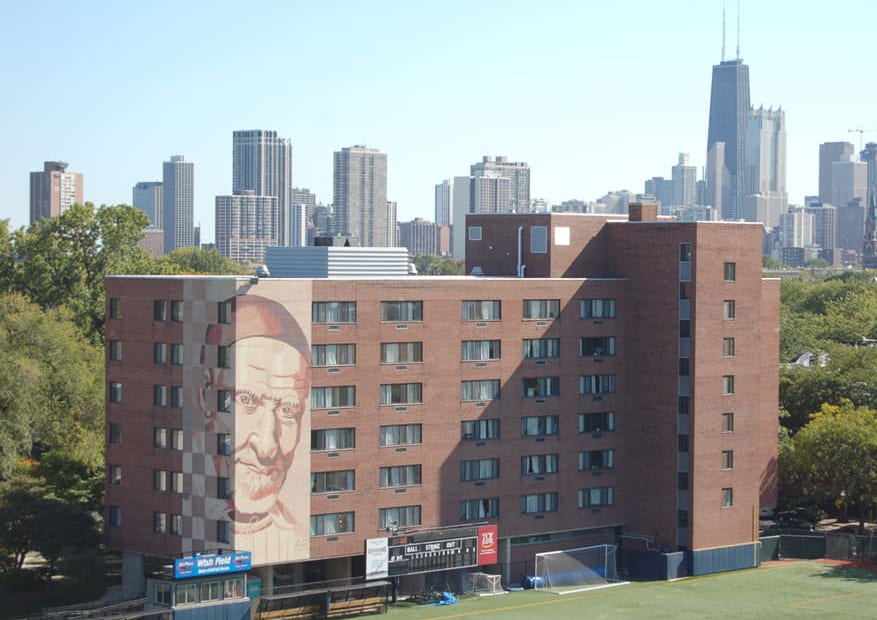
Recently, the Office of Institutional Diversity and Equity invited academician and scholar Maureen H. O’Connell to speak about her book Undoing the Knots: Five Generations of American Catholic Anti-Blackness.[1] In her remarks, which drew from her own personal history as well as the history of the American Catholic Church, O’Connell examined Catholic anti-blackness and its mournful legacy of slave ownership, segregation, inequity, and exclusion. She also did something unusual and juxtaposed this history with the Synod of Bishops currently taking place in the Catholic Church.
For those unfamiliar, a Catholic synod is a body made up of selected bishops from around the world. Their purpose is to advise the Pope on myriad issues pertaining to the Church and to help the Pope grow closer in understanding and relationship with the bishops, clergy, and indeed, all members of the Catholic community. This current synod was called by Pope Francis and is scheduled to last until late 2024. Its themes revolve around communion, participation, and mission, as Pope Francis endeavors to make real his vision of a more inclusive Church—one that is open, collegial, and supportive; a Church that walks with its members with mutuality and care.
It is provocative that O’Connell chose to review one of the darkest chapters of American Catholicism through the lens of a forward thinking, hope-filled synod. For whether we are looking back at our history or taking stock of our present reality, it can be difficult to build a convincing case that humans, Catholic or otherwise, can live as Pope Francis dreams. The scourge of enslavement and racism, inequity and exclusion, the ongoing wars in Gaza, in Sudan, and Ukraine, and even the unrest on our own campus are but some examples that illustrate the long reality of discord throughout both the Church and the world.
However, O’Connell offered a radical response to the tumultuous and disordered reality of the human condition: the Holy Spirit can be found in the chaos. If we are people of faith and hope, then somewhere within us is a belief that disarray in the world may be transformed into something beautiful and good. In a letter to Vincent de Paul, Louise de Marillac herself proclaimed this belief when she said: “I see such disorder everywhere that I feel overwhelmed by it. Nevertheless, I continue to hope, and I wish to place my trust in Divine Providence…”[2] Likewise, Pope Francis has acknowledged the brokenness of the world and the role of the Church when he said, “We have to learn to live in a church that exists in the tension between harmony and disorder, provoked by the Holy Spirit.”[3]
Saints Vincent and Louise, Pope Francis, and Maureen O’Connell share this in common. Each holds fast to the belief that chaos can be transformed into something good; that the Holy Spirit can be found in the brokenness. From this shared belief, each has worked in their own way to realize this hope. Vincent, Louise, and their followers have done so by serving those most in need of spiritual and material support, while Pope Francis and O’Connell have used their gifts to help bring needed reform and reconciliation to the Church and the world.
At DePaul, we are the fortunate beneficiaries of the faith and wisdom that Vincent, Louise, Pope Francis, and O’Connell pass on. Like them, we can choose to believe that good will make its way through the chaos, and that the Holy Spirit, however understood, is alive in us even during our most stressful and disordered times. And, like them, we can commit to do all we can to bring these hopes to life.
Questions for Reflection:
- Have there been times of chaos in your life or, like Louise, times when you have felt overwhelmed? How did you get through those times? Looking back, are you able to see any good that came from the chaos?
- If you believe, like Vincent and Louise, that challenging and tumultuous times may be transformed into something better, what is something you can do to help that transformation occur? How can you help make a challenging circumstance better?
Reflection by: Tom Judge, Assistant Director and Chaplain, Faculty and Staff Engagement, Division of Mission and Ministry
[1] Maureen O’Connell, Undoing the Knots: Five Generations of American Catholic Anti-Blackness (Beacon Press, 2022), 272 pp.
[2] L.10, To Monsieur Vincent, (Between 1639 and 1647), Spiritual Writings, p. 335.
[3] Austen Ivereigh, “An Interview with Pope Francis: ‘A Time of Great Uncertainty,’” Commonweal Magazine, 12 March 2023, at: www.commonwealmagazine.org/time-great-uncertainty.
